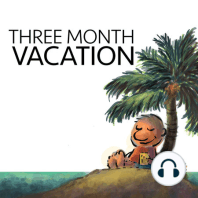7 min listen

How To Save Two Zillion Hours in Research (Using Cool Techniques with Evernote)
How To Save Two Zillion Hours in Research (Using Cool Techniques with Evernote)
ratings:
Length:
26 minutes
Released:
May 25, 2015
Format:
Podcast episode
Description
How much time does it take to do research? Yup, those zillions of hours go down the drain and get us exhausted. And that's because we go about doing research the "wrong way". Most of us do our research once we sit down to write an artilce, create a webinar or podcast. A zillion hours later, the content is still not ready and the hours have flown away needlessly. That needn't be the case at all. Almost all research needs to be done in advance and stored away. But how do you find it once it's stored away? That's where the power of "opposite" tagging", default notebook and the phone and iPad come along. Find out how to reclaim those zillions of hours back—right now! -------------------- Useful Resources To access this audio + transcript: http://www.psychotactics.com/41 Email me at: sean@psychotactics.com Twitter/Facebook: seandsouza Magic? Yes, magic: http://www.psychotactics.com/magic -------------------- Time Stamps 00:00:20 Finding Money In My Jeans 00:05:31 Table of Contents 00:06:08 Part 1: How To Take Pictures 00:12:12 Part 2: Why Tagging With Opposites Matters 00:15:51 Part 3: Default Notebook 00:19:35 Summary 00:21:14Final Comments + Offers ==== Transcript This is the 3-Month Vacation and I'm Sean D'Souza. When I was a teenager, nothing was more interesting to me than finding money in my pant pockets. I'd have all these pairs of jeans and obviously I'd use some of them and then not use the others, and just mix them around. Then eventually I'd go back to the same pair of jeans, yes, dirty jeans, we know. You're a teenager, remember? Then I'd find money and I'd announce it to the world. My mother would go, "But, it's your own money." I just found it really interesting. I found it very exciting to find money that I thought I didn't have. I don't know what it might feel like to win the lottery because I'll never buy a lottery ticket, but this sure felt great. To me it felt like winning the lottery. There was of course, a problem with this method, and that was I couldn't find money when I needed it, and so it was not such an efficient method. Evernote on the other hand, is an amazing tool. If you want to find information, you can find it every single time. When I first got Evernote, I thought it was a pretty average tool. I didn't understand it. You know how you sit down and you do research every time you're writing an article or you're writing a book or you're creating a podcast or a video? That's the worst time to ever do research. Research should be done in advance. Evernote is a research tool where you collect all your information in advance and then you're able to find it easily. In fact, you don't have to remember anything because Evernote will remember it for you. In this episode we're also going to cover a concept of tagging that you've probably not considered and that will make your entire presentation, your books and other stuff, amazing. Back in 2010, I was doing a workshop on uniqueness and we were doing the workshop in California, then in Washington D.C. and then in Guildford, which is just outside London. That summer was a brutal summer for me. Remember, summer is December in New Zealand, so all of December, and a good part of January, I was really tired because I had been writing the notes for the workshop. We always send the notes month in advance for all our workshops. We send all the participants the notes a month in advance. Then once I finished the notes I had to start on the slide. When I'm working on slides, I'll put most of the information together and then I'll leave some slides blank for examples and more information that I need to add later. The time came for us to leave on our trip and off we went to the U.S. We reached Campbell, California. That was our first stop. After the first day, which went really well, I sat down in the evening and I went t
Released:
May 25, 2015
Format:
Podcast episode
Titles in the series (100)
Is The Four-Hour Work Week A Waste Of Time?: Why A Four-Hour Workweek Isn't What We Really Want by The Three Month Vacation Podcast